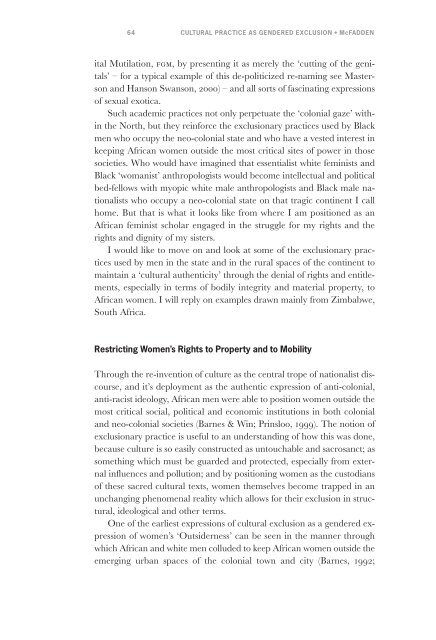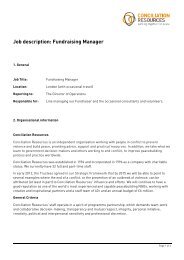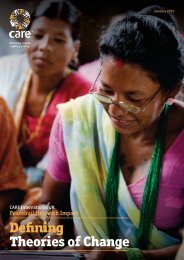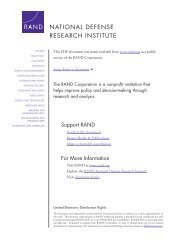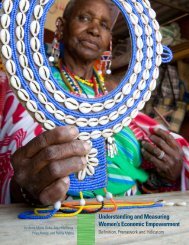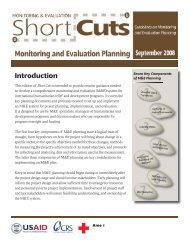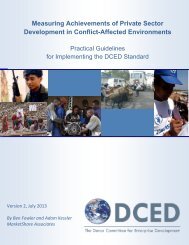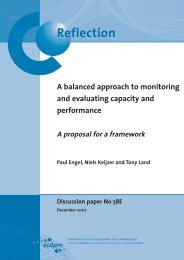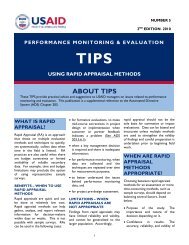Discussing Women's Empowerment - Sida
Discussing Women's Empowerment - Sida
Discussing Women's Empowerment - Sida
Create successful ePaper yourself
Turn your PDF publications into a flip-book with our unique Google optimized e-Paper software.
64<br />
CULTURAL PRACTICE AS GENDERED EXCLUSION • McFADDEN<br />
ital Mutilation, FGM, by presenting it as merely the ‘cutting of the genitals’<br />
– for a typical example of this de-politicized re-naming see Masterson<br />
and Hanson Swanson, 2000) – and all sorts of fascinating expressions<br />
of sexual exotica.<br />
Such academic practices not only perpetuate the ‘colonial gaze’ within<br />
the North, but they reinforce the exclusionary practices used by Black<br />
men who occupy the neo-colonial state and who have a vested interest in<br />
keeping African women outside the most critical sites of power in those<br />
societies. Who would have imagined that essentialist white feminists and<br />
Black ‘womanist’ anthropologists would become intellectual and political<br />
bed-fellows with myopic white male anthropologists and Black male nationalists<br />
who occupy a neo-colonial state on that tragic continent I call<br />
home. But that is what it looks like from where I am positioned as an<br />
African feminist scholar engaged in the struggle for my rights and the<br />
rights and dignity of my sisters.<br />
I would like to move on and look at some of the exclusionary practices<br />
used by men in the state and in the rural spaces of the continent to<br />
maintain a ‘cultural authenticity’ through the denial of rights and entitlements,<br />
especially in terms of bodily integrity and material property, to<br />
African women. I will reply on examples drawn mainly from Zimbabwe,<br />
South Africa.<br />
Restricting Women’s Rights to Property and to Mobility<br />
Through the re-invention of culture as the central trope of nationalist discourse,<br />
and it’s deployment as the authentic expression of anti-colonial,<br />
anti-racist ideology, African men were able to position women outside the<br />
most critical social, political and economic institutions in both colonial<br />
and neo-colonial societies (Barnes & Win; Prinsloo, 1999). The notion of<br />
exclusionary practice is useful to an understanding of how this was done,<br />
because culture is so easily constructed as untouchable and sacrosanct; as<br />
something which must be guarded and protected, especially from external<br />
influences and pollution; and by positioning women as the custodians<br />
of these sacred cultural texts, women themselves become trapped in an<br />
unchanging phenomenal reality which allows for their exclusion in structural,<br />
ideological and other terms.<br />
One of the earliest expressions of cultural exclusion as a gendered expression<br />
of women’s ‘Outsiderness’ can be seen in the manner through<br />
which African and white men colluded to keep African women outside the<br />
emerging urban spaces of the colonial town and city (Barnes, 1992;


